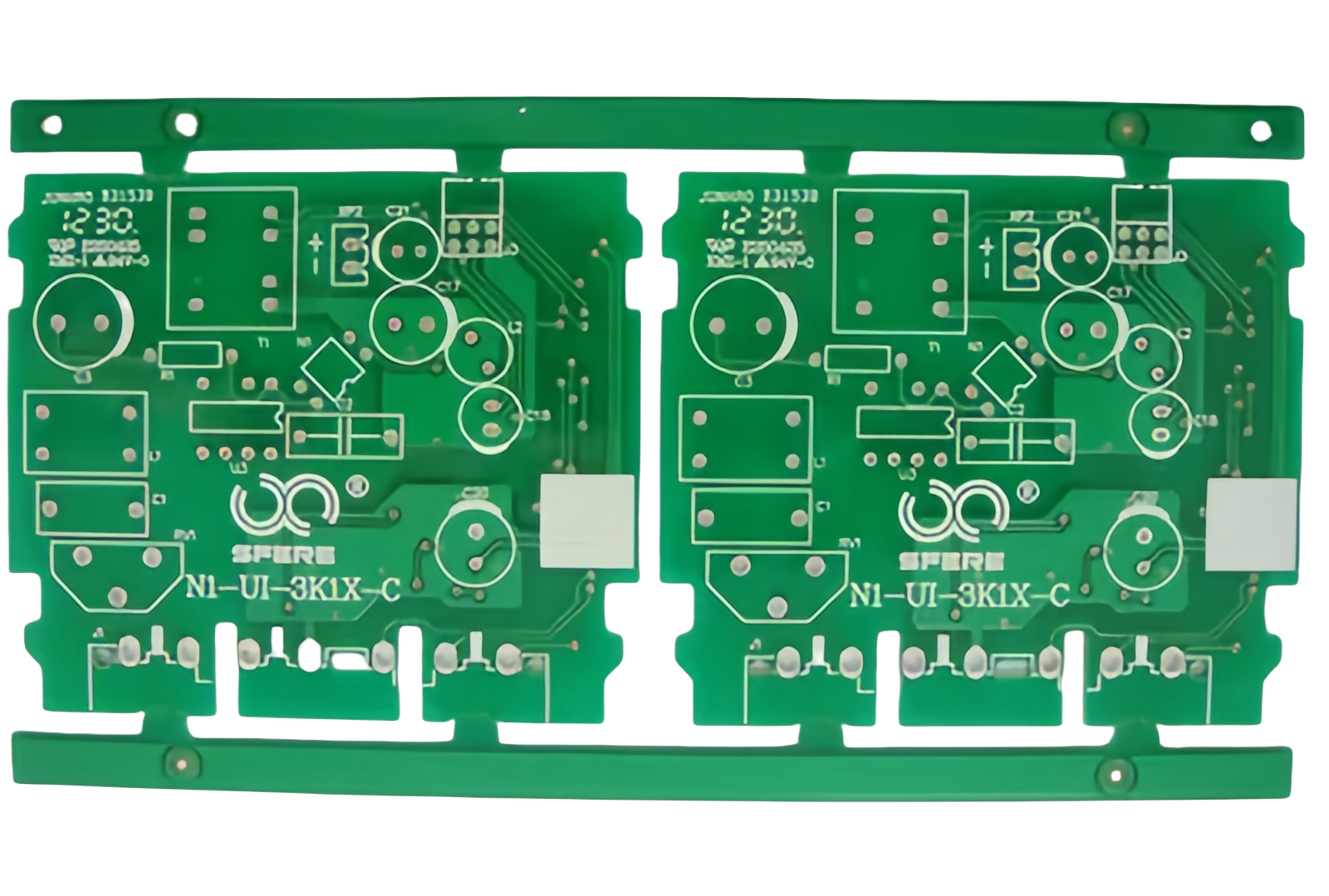
Smart meter PCBs usually use double-sided circuit boards to meet the performance and functional requirements of the equipment. The surface treatment usually uses lead-free tin spraying process. Double-sided PCB means that there are conductive patterns on both sides of the circuit board, which can effectively increase the connection density of the circuit and reduce the wiring length per unit area.
Lead-free tin spraying is a surface treatment process that usually forms a thin layer of tin on the pads and contact points of the PCB to improve welding performance and anti-oxidation ability. Lead-free tin spraying treatment can provide better electrical connections and longer service life.
The lead-free tin spraying surface can effectively prevent oxidation and wear, ensure the connection stability in long-term use, and is particularly suitable for high-frequency and high-speed applications.
The good conductivity and wettability of the metal pad make the welding process smoother, especially suitable for the welding of SMT (surface mount technology) components.
FR-4 material, immersion gold surface treatment can effectively reduce signal loss, improve PCB electrical performance, and is suitable for high-frequency applications.
Use PCB design software to complete the circuit diagram and layout to ensure that the double-sided circuit wiring is reasonable and the signal
Make FR-4 substrates according to the design files, clean and dry them, and prepare for subsequent processing.
Etch the substrate surface to form the required circuit pattern, and then cover it with a thick copper layer to ensure conductivity.
Generate a gold layer on the pads and contact points through chemical deposition, complete the gold treatment, and ensure good conductivity and oxidation resistance in the welding area.
Conduct electrical testing and quality inspection to ensure that the PCB meets the standard requirements before leaving the factory.




















